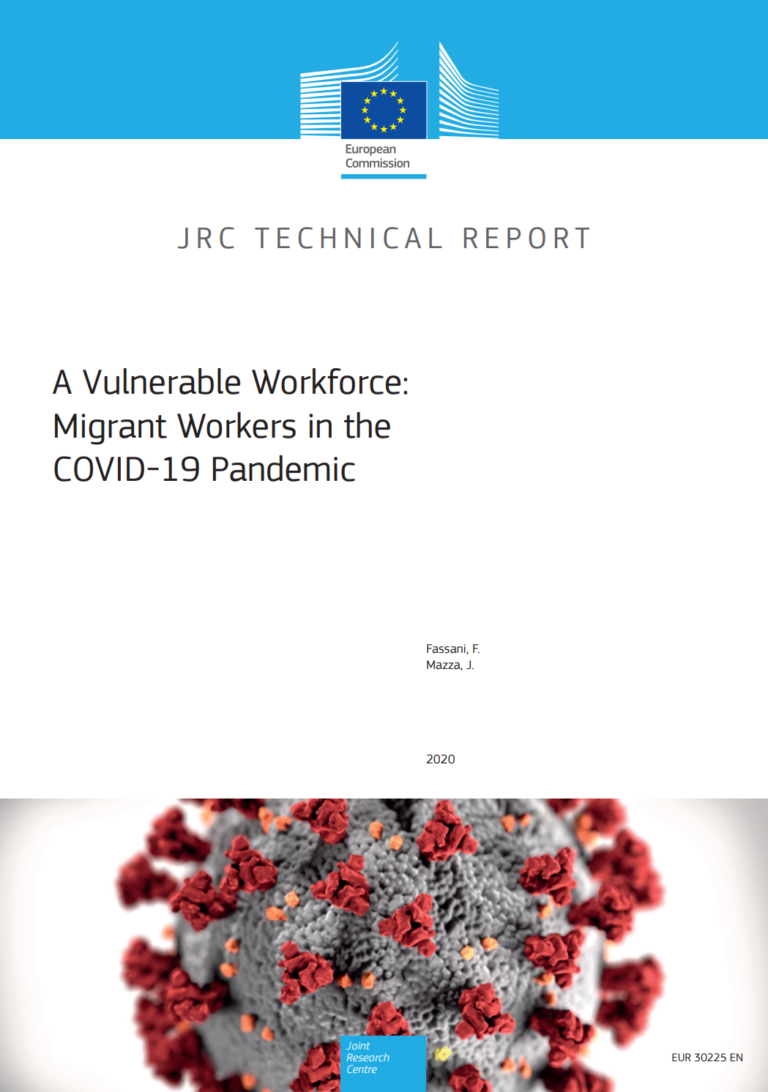This report analyses the labour conditions of migrant workers in the EU in the context of the COVID-19 epidemic. By looking at the prevalence of temporary contracts, the position in the income distribution and the likelihood that jobs can be conducted from home for both key and other migrant workers, it highlights the potential and distinct vulnerabilities for these two groups. Foreign born workers – especially ExtraEU migrants – are at a disadvantage in all three dimensions: they are more likely to be in temporary employment, earn lower wages and have jobs that are less amenable to teleworking. The report concludes by identifying possible areas of policy intervention to address these vulnerabilities.

